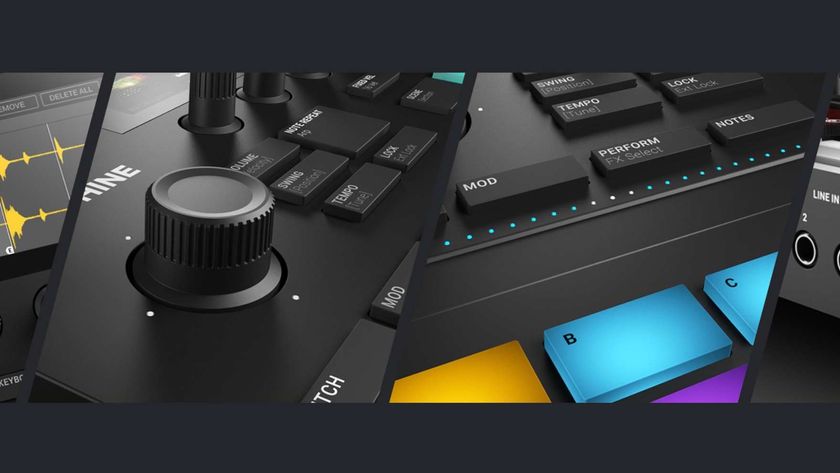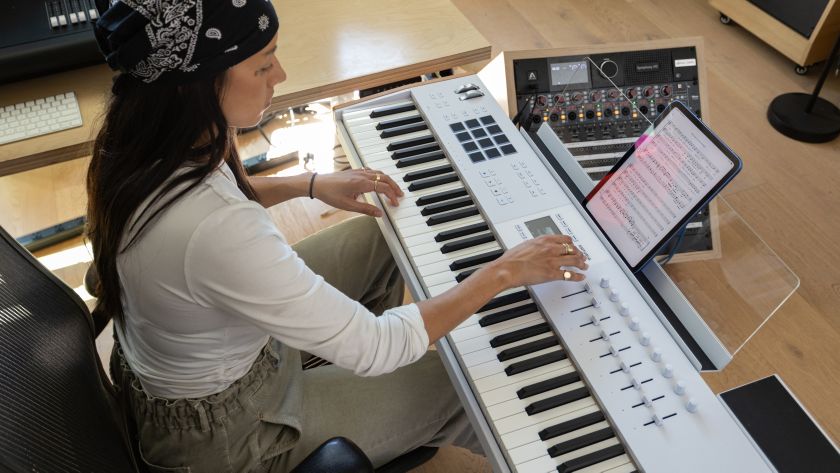Keith McMillen's K-Board Pro 4 is a more affordable expressive controller with a traditional keyboard layout
Things might be about to get interesting in the MPE market
There are several MPE (Multidimensional Polyphonic Expression) controllers on the market now, but they're all pretty expensive, and many of them don't play like a traditional keyboard. Keith McMillen Instruments' K-Board Pro 4 looks like it could be different, as it appears to pack expressive features into a more standard form factor and to trump its rivals on price.
Billed as an expressive smart sensor keyboard, K-Board Pro 4 is a 4-octave controller with multiple dimensions of touch sensitivity on each key. Specifically, it can send attack velocity, release velocity, continuous pressure, horizontal position, and vertical position data, meaning that you have far more expressive options than on a standard controller.
This is made possible by KMI's Smart Sensor Fabric technology, which sits under each key. This has been used in all of the company's previous controllers, including the standard K-Board. The keys themselves are made of silicone and there are no moving parts. The surrounding frame is made from aluminium.
You can define what's being controlled by each axis (pressure, side-to-side movement and up-down movement) in a software editor. There are also four configurable touch-sensitive sliders above the keyboard.
K-Board 4 is currently the subject of a Kickstarter campaign. At the time of writing, $400 will get you an 'early bird' model in September 2017, though limited numbers are available at this price.
As things stand, the K-Board 4's closest competitor would appear to be ROLI's SeaBoard Rise 49, which retails for around £949/$1,200. That's a significantly more expensive product and is based on different technology, but we'll be keen to find out how the two products compare.
Get the MusicRadar Newsletter
Want all the hottest music and gear news, reviews, deals, features and more, direct to your inbox? Sign up here.



I’m the Deputy Editor of MusicRadar, having worked on the site since its launch in 2007. I previously spent eight years working on our sister magazine, Computer Music. I’ve been playing the piano, gigging in bands and failing to finish tracks at home for more than 30 years, 24 of which I’ve also spent writing about music and the ever-changing technology used to make it.











